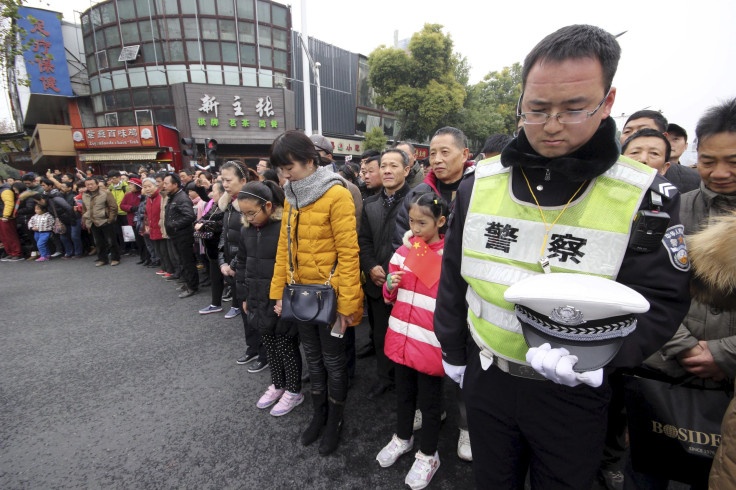Xi Absent As China Marks Low Key Nanjing Massacre Anniversary

China marked in low-key fashion its second national memorial day for the Nanjing Massacre on Sunday, with President Xi Jinping skipping the main event and a relatively junior official leading the somber ceremony instead.
China and Japan have long sparred over their painful history. China consistently reminds its people of the 1937 massacre in which it says Japanese troops killed 300,000 people in its then capital.
A postwar Allied tribunal put the death toll at 142,000, but some conservative Japanese politicians and scholars deny a massacre took place at all.
But the neighbors have been moving to improve ties long overshadowed by their painful history, and last month China, Japan and South Korea held their first three-way summit in three years.
While last year Xi went to Nanjing to mark China's first formal memorial day for the massacre, this year Li Jianguo, a vice chairman of the standing committee for China's largely rubber stamp parliament, gave the main speech.
Soldiers placed large wreaths in front of the main memorial as funereal music played, in images carried live on state television.
Speaking in front of hundreds of soldiers, veterans and school children at the Nanjing Massacre memorial, Li said China would never let anybody deny the crimes of invaders.
China was holding the memorial not to prolong hate but to help forge a more peaceful future, he said.
"At the same time, we just resolutely oppose anyone who tries to beautify the war of aggression or tries to drive back on history," Li said.
Doves to signify peace flew overhead once Li, wearing a white flower on his lapel to signify mourning, finished speaking.
In September, Xi oversaw a big military parade in Beijing to mark 70 years since the end of World War Two.
Almost all senior Western leaders stayed away from that event, nervous about sharing the stage with dignitaries such as Russian President Vladimir Putin, and about China's message to a region worried by its growing military assertiveness over claims in the South China Sea.
© Copyright Thomson Reuters 2024. All rights reserved.





















